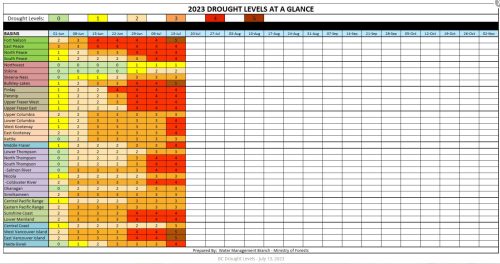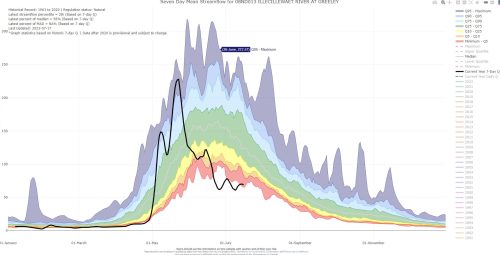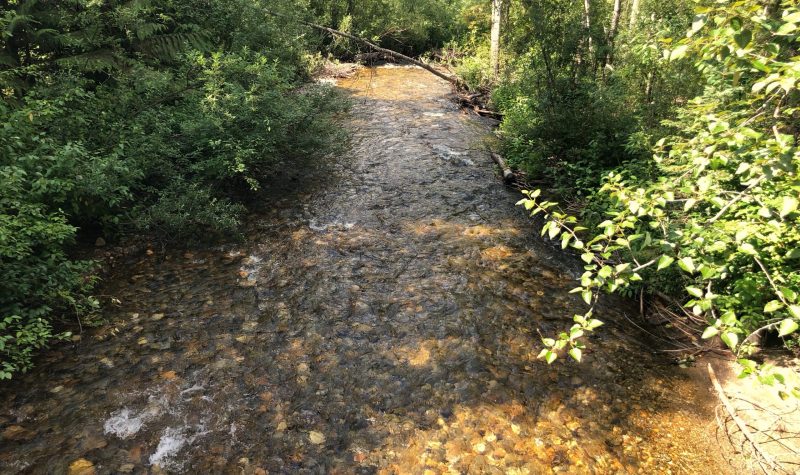The government of B.C. is saying that drought conditions across the province are extreme. Ministers are calling on British Columbians to shift their mindset to one of water conservation.
“While it is not uncommon for British Columbians to face drought, the level and extent of drought that we’re seeing this early in the season is deeply concerning.” Said Bowinn Ma, the minister of emergency management and climate preparedness.
There are four water basins at drought level five, the highest according to the BC Drought Information Portal. They are the Bulkley Lakes in the centre of the province, Fort Nelson in the northeast corner, and all of Vancouver Island.
Revelstoke is in the Upper Columbia watershed. It’s at drought level three, which means that adverse impacts of the drought are possible.

B.C. drought levels at a glance. Screen shot from the British Columbia Drought Information Portal.
The Lower Columbia watershed is in drought level four, which means adverse impacts are likely.
A streamflow map provided by the B.C. government Drought Information Portal shows that the Illecillewaet River at Greeley Creek is at drought level 5, the highest level of drought. Revelstoke did have recent rainfall, and the streamflow is measured weekly.

This chart shows streamflow levels of the Illecillewaet River at Greeley Creek. Streamflow is measured weekly. Photo screenshot from the BC Drought Information Portal.
First Nations, regional districts and municipalities put in water restrictions for residents. Ma said the province is working with local governments to make sure restrictions are in place and being enforced.
The province is able to restrict water use licensees from using water. These include industries like fracking, oil and gas, mining and agriculture. The province restricted water use for fracking in the Peace Region.
The city of Revelstoke restricts water use but it is mainly so it can fill its reservoir every evening with treated water. People are only supposed to irrigate every second morning.
Steve Black, lead engineer with the city, said that people are watering in the evening and if it continues the city may increase restrictions. He said although the city isn’t concerned about water levels now, there has been a discernible lack of precipitation.
Although the drought began last fall, the heat wave at the end of April and beginning of May is what led to the current conditions.
Jonathan Boyd, with the River Forecast Centre, said it was the hottest May on record and the quickest snowmelt on record. As of July 10, 81 water stations in B.C. were at the all-time lowest record for that date. That’s a quarter of the stations.
“It’s pretty extraordinary. The biggest fear now is to have dry conditions in September and October like last year”, Boyd said. “If that were to happen we could end up in a pretty significant drought at the times when flows are at their lowest.”
Boyd said prolonged, atmospheric river-like rainfall is needed to make up for the current shortfall.
CLICK BELOW FOR A RADIO REPORT ON THIS STORY.


